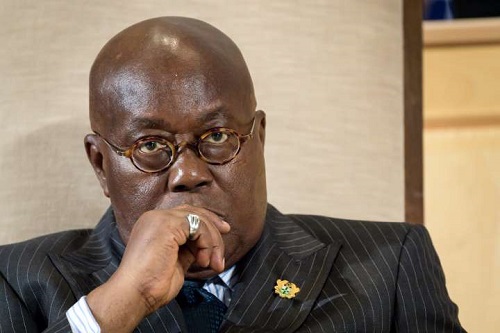Adib Saani a security analyst is not happy with President Akufo-Addo's decision to lift the restriction of movement in Accra and Kumasi.
The two cities were under a partial lockdown for 3 weeks but in the President's address to the nation on April 19, 2020, he lifted that restriction.
Mr Saani is of the view that this decision betrays his words concerning the fight against the novel coronavirus.
Portions of his statement read: "The President HE Nana Addo Dankwa Akufo-Addo won international admiration with his acclaimed statement, “we know what to do to bring our economy back to life. What we do not know how to do is to bring people back to lifeâ€.
However, the pointless decision to lift the lockdown in Accra, Kumasi and their environs betrays the President’s own words so far as combating the novel coronavirus is concerned."
READ ALSO: Ghana’s COVID-19 case count now 1,042 - Akufo-Addo
Ghana's case count as of April 19, 2020, stood at 1,042 with 9 deaths and 99 recoveries.
Below is the full statement
PRESIDENT’S LIFTING OF LOCKDOWN A GAMBLE THAT COULD BACKFIRE
The President HE Nana Addo Dankwa Akufo-Addo won international admiration with his acclaimed statement, “we know what to do to bring our economy back to life. What we do not know how to do is to bring people back to lifeâ€.
However, the pointless decision to lift the lockdown in Accra, Kumasi and their environs betrays the President’s own words so far as combating the novel coronavirus is concerned.
All over the world, countries are extending lockdowns and even in some cases, making it stricter. The only situations where lockdowns have been eased or lifted is when the infection curve is flattened and backed by Science or empirical data.
In Ghana’s case, the curve seems to spiral upwards with no sign of flattening in the immediate future.
According to a new study by the Imperial College London COVID-19 Response Team, the purpose of a lockdown is to reduce reproduction – in other words, to reduce the number of people each confirmed case infects. The goal is to keep reproduction, or “R,†below one (R<1) – with each case infecting fewer than one other person, on average.
The authors of the study say there are two routes to try to get there; Mitigation, “slowing but not necessarily stopping the epidemic spread and Suppression, or basically, lockdown, which “aims to reverse epidemic growth, reducing case numbers to low levels†by social distancing the entire population “indefinitely†and closing schools and universities. The study’s models show that, painful as lockdown may be for many of us, it works.
Without any lockdown or strict social distancing measures and enforcement, we can expect peak mortality in the future. As the World Health Organization (WHO) warned, Africa could become the next epicentre of the coronavirus outbreak. UN officials also say it is likely the pandemic will kill at least 300,000 people in Africa and push nearly 30 million into poverty.
It is worth noting that, almost all world leaders including US President Donald Trump and British Prime Minister Boris Johnson, who ignored WHO warnings, are licking their wounds today. I am not sure we would want to get there. Besides, how effective would enforcing the social distancing protocols be?
I do appreciate the untold economic and social hardship this lockdown is posing to the ordinary Ghanaian. But we are in desperate times and desperate and sometimes draconian measures would have to be adopted for the greater good of public health and safety. WHO Director-General Tedros Adhanom Ghebreyesus previously warned that loosening restrictions ‘could lead to a deadly resurgence’ in coronavirus across the world.
As Indian Prime Minister Narendra Modi put it, “if we see the nationwide lockdown purely from an economic perspective, then it will surely appear to be a costly decision. But the cost is of no comparison when compared to the importance of human lifeâ€.
Ghana does not have to wait for the situation to worsen. Rather we need to act more aggressively at the time our curve is not showing any sign of flattening and take steps to try and contain it.
In the end, it is a bitter pill to swallow so we get well.
Adib SaaniSecurity Analyst/Executive Director, Jatikay Centre for Human Security and Peace Building





